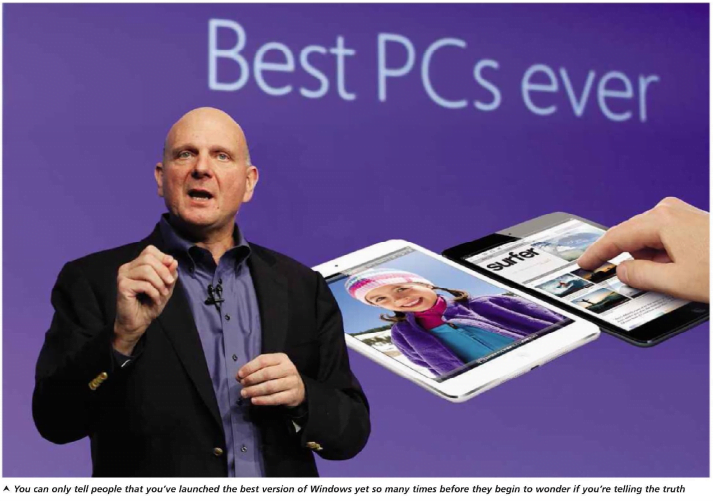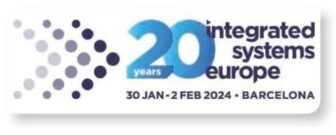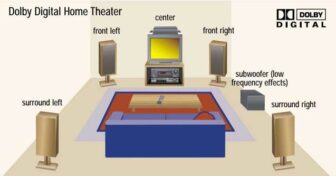The future of Windows XP
Computer tips and tricks examines the destiny of Microsoft’s most successful OS and how It might survive ts impending eulogy.
I’m not sure if it’s a seasonal thing, but Microsoft has been doing a very passable impression of the ghost of Jacob Marley these past few months.
This isn’t anything new, mind, because it started rattling chains and making other such other-worldly emanations in May 2013. “Small businesses, we know you love Windows XP. It’s been good to you. But it’s 12 years old, and the time has come to start bidding it a fond farewell,” Microsoft’s Jennifer Chen reminded people.

Microsoft understands that most businesses can’t turn on a dime, like its own, and felt it critical to ask if they’d put in place a plan for when the XP plug would be pulled on 8th April 2014.
The reality is that as I write this, at least 400 million people are entirely happy using Windows XP, and they’re not remotely ready for the big switch off. But that hasn’t stopped Microsoft upping the ante in making the end of support for XP a more modern equivalent to the millennium bug.
So what cataclysm, according to Microsoft, will happen when 9th April arrives?
Judgement Day
With around 30% of the world’s PCs still running XP in Q1 2013, Microsoft realised a while ago that getting those customers to move along smartly was going to be a challenge.
In December, it wound up the public relations machine one more time, iterating that XP was good once, but it’s sufficiently streetwise for the increasingly bruising internet of the 21st century.
“While Windows XP was a great operating system for its time and introduced some great anti-malware and security features, it’s no longer enough to defend against the onslaught of modern threats that organisations face,” Microsoft stated.
“With every new version of Windows we have made substantial security updates from the previous versions, and both consumers and organisations can get advice on how to upgrade to a more recent operating system at www.get2modern.com” For those who took that advice and headed to get2modern. com, they then found themselves at www.microsoft.com/en-us/windows/business/retiring-xp.aspx where they also got the bad news that support for Office 2003 is on the chopping block as well.
Additionally, Microsoft outlined the four horsemen of this apocalypse, those being Security Risk, Software Issues, No One To Call, and the worst of all, Down Time.
Here are the warnings in all their gory glory:
Security risk
Without critical Windows XP security updates, your PC may become vulnerable to harmful viruses, spyware, and other malicious software which can steal or damage your business data and information. Anti-virus software will also not be able to fully protect you once Windows XP itself is unsupported.
Software issues
Many software and hardware vendors will no longer support their products that are running on Windows XP as they are unable to get the Windows XP and Office 2003 updates. For example, the new Office leverages the modern Windows and will not run on Windows XP.
No one to call
When problems arise, online and phone-based technical support will unfortunately no longer be available to assist you or your IT partner, leaving you on your own to deal with the problem.
Down time
The risks of system failure and business disruption could increase because of the end of support lack of supported software and the increasing age of hardware running Windows XP.
The trouble is that with all these statements is that for the most part they’re easily refutable. The first risk might be true, but realistically since when did anti-virus companies care about Windows support? Surely it’s the point of their products to catch the malware that XP lets through, because Microsoft left holes in it.
Out of all of these, the one that makes me laugh the most is ‘No one to call’, because having been a IT professional for the best part of 30 years, I’ve never rung Microsoft to solve a technical problem once.
The last point also flies in the face of the reality that Microsoft is facing with its business customers, which is that they won’t move away from XP because they don’t want down time, sorting out the move away from legacy systems. As if to entirely undermine its arguments, the web page then goes on to recommend Windows 8 Pro, a choice that most business users would only make as an alternative to water-boarding.
The disconnection shown here isn’t surprising, and the reality of XP hitting the support buffers might not be as bad as Microsoft would like to portray.
Real Vs Imaginary
I’m not going to dress this up; the end of XP support will have implications, but how much they impact on you will completely depend on what you do with your systems.
On 9th April 2014, any zero-day exploit that is discovered for XP (or more probably the browsers it runs, I suspect) will go unpatched. Microsoft won’t help, although I’ll be surprised if everyone infected will simply turn off their PC and go buy a new one.
What’s less clear Is how software companies, especially those in the security sector will react to this, because the commercial reality is that XP owners still buy licences from McAfee, Symantec, Kaspersky and their ilk, so they deserve the latest definition files and tweaks. How they react after the end of support could entirely colour events, although I haven’t seen any of them rushing to declare XP as unsupported so far.
A bigger genuine issue is activation, mostly because it’s the responsibility of Microsoft.
Amazingly, at this time, Microsoft has not made any statement about XP activation servers, which you’ll need if you have to reinstall the OS at any point. We’re in uncharted territory here, because XP was the first activated version of Windows. If it turned off those activations it would get plenty of abuse, and its legal position might be poor, but it will inevitably happen at some point.
Is there any way that you can carry on using Windows XP beyond April 2014 and get support from Microsoft? Oddly, yes. What Microsoft hasn’t promoted at all is it will continue support, because it hasn’t ended it for Windows Server 2003 R2, which is, when all is considered, Windows XP in another form.
For the most part, patches released for Windows Server 2003 R2 would work if applied to XP, confusingly. And Microsoft isn’t due to stop supporting that OS for another year or more.
I can see some mileage here, but the greater problem is that Microsoft is missing a huge business opportunity, because its business model doesn’t allow it to consider any alternatives.
Two Paths, One Destiny
Having looked at this unfolding scenario for some time. I’m drawn to conclude that Windows XP is a modern parable about the increasing chasm between what people want and what they actually get.
For many people, XP is essentially what they want in an OS.
It’s reliable, has a vast collection of compatible software, works on a huge range of hardware, and whatever problem you have, someone, somewhere has solved it.
In this respect, it’s the reason the Boeing 747 is still made and the AK-47 is still the most produced automatic weapon of all time, and over 100 years after their creation, almost 100% of motor vehicles use pneumatic rubber tires. In two words, it works.
In 1985, the highly respected beverage company The Coca- Cola Company made the sort of business decision that still haunts many, when it decided that the product it had sold successfully since 1886 needed to be changed. New Coke, as it called the replacement, was a fiasco of biblical proportions, because the public reaction to it was almost entirely negative.
The lesson Coca-Cola learned, painfully, was that if you have massively successful products, then don’t be in a massive rush to change them, whatever your marketing people say.
However, the software industry was wholly built on a model where you’d sell the same product multiple times, with minor changes and harvest the same customers repeatedly. The danger of that policy is cruelly exposed when you, usually totally by accident, produce a product that satisfies the customer base almost entirely.
Prior to Windows XP, the products that Microsoft made for the most part had obvious flaws and limitations, where changes and improvements would be welcome.
For example, Windows 3.0 arrived, and it looked good and worked most of the time, but it was unstable in many situations, didn’t have good driver support initially, and it didn’t have proper networking support.
When the more stable, network- inclusive Windows for Workgroups 3.1 arrived people lapped it up, grasping the obvious and immediate benefits.
The trouble with XP, after some initial teething, is that there weren’t the same obvious problems to address. And, worse than that, as the PC hardware performance blossomed under it, the XP experience actually got better over time. The slowness of Microsoft in delivering Vista didn’t help, because the longer XP was the Windows solution, the more it convinced people that they didn’t need an upgrade.
Multiple Corners Of One Argument
If you read any of the major tech website forums, you’ll see the same sniping going on between three now entrenched positions on the subject of Microsoft’s flagship OS.
There’s a small, but vocal minority, who love the direction that Microsoft has taken Windows 8 and who want everyone to give up their desktop apps and do their work with touch. There’s another slice who are happy to use Windows 8.x, but they admit they use it like Windows 7 and have installed some applications to bring back the Start menu, not just the button.
There’s a group who are telling others to install Windows 7 while you can still get it and to forget the Windows 8 ‘experiment’. And, there’s a huge and generally quiet group, who use Windows XP on a daily basis and wonder why the others are so keen to see the back of it if they don’t actually work for Microsoft.
The friction between these points of view is significant, with each accusing the others of not seeing the bigger picture, while oddly ignoring the perspective of those that don’t openly agree with them.
The problem for Microsoft is that there isn’t much common ground for these positions, and the group thinking Windows 8.x is the destiny of Window is rather small and, given the poor sales of that OS, somewhat on the defensive.
A Reality Check
There’s a fine irony to the scare-mongering that accompanies each bell toll of XP’s existence. XP, by any standard, is the most patched OS in the history of computing. The reason we can say that is because it’s been around in widespread use longer than any other, but also because it had so many holes that needed addressing from the outset. When Microsoft created Windows XP, it didn’t care that much about security, and that’s been widely exploited from the outset.
Since then, it’s realised that people aren’t so keen on being hacked, and each version of Windows is now sold as being more ‘secure’ than those that came before. It’s been a long-time statement that Apple repeatedly makes about OS X, that it’s more secure than Windows, because it gets fewer trojans aimed at it.
Those two things don’t actually equate, because the reason that malware writers target Windows isn’t because it’s that much easier to invade, specifically, but because they want to infest the greater number of machines.
They don’t rate their success on the average cost of the hardware they’ve infected, so they probably aren’t interested in the small market share that Apple represents.
If you expand that logic, the only reason that XP gets such malware attention is because it’s so popular, and should Windows 8 suddenly become the OS flavour of the month, it will be attacked much more relentlessly. In many ways, Windows XP is the meat-wall for the later Windows products, taking the majority of malware, mostly on machines that aren’t regularly patched for whatever reason.
Thinking this logic, through, should the world of Windows become predominately Windows 8 based, in the fullness of time, then it would become the prize. If that happened and the number of XP users declined significantly, then it might actually get ignored by malware creators, turning this whole scenario on its head.
If you think my thinking is fanciful, then you only need to track the number of scare stories about Android circulating these days, which have been stimulated by the domination of that OS in the mobile sector.
Mobile malware is the new honey pot, so the likes of BlackBerry and Windows Phone remain relatively virus-free because of their small market share.
Flawed Thinking
While I was writing this, I started to consider what would happen if other major product makers in the world walked away from all the products they made prior to 2001, even though most of them are still in use.
Well, realistically, most car makers don’t have that luxury, do they? In fact, in terms of manufactured goods, it’s usually possible to get parts for fridges, washing machines and boilers going back 20 years or even longer.
It can be argued that those items don’t need fixing for new threats to their operation, but it’s also true that in many instances support goes on for much longer from the original maker and then is ultimately taken up by third-party businesses.
That last point is critical, because the fact that I can find a company now that can supply parts for a Jaguar E-Type from 1961 {year of my birth) shows that there is money in providing that service. Even if the number of those vehicles still on the road in the UK is only about 4,500, those that own them like to keep them working. To put that in perspective, Microsoft has 400 million customers that it’s only interested in supporting by them junking their OS (and possibly their PC with it), and not in any other strategic way. The assumption they’ve made is that once support is removed, these people will have no choice but to buy Windows 8, because it’ll make sure Windows 7 is gone smartly. That’s not a great assumption, because it entirely ignores the state of the PC market, where people are buying iOS and Android devices instead of PCs and giving up having a Windows machine. When Microsoft tells people to move on, it doesn’t actually get to decide where they go, and if that doesn’t worry it, then it should. That’s flawed thinking, but the idea that once support is removed from XP everyone will turn it off and walk away is also unsupported by Microsoft’s own experience. The number of key customers who are still using Windows 2000 proves categorically that many operations and individuals just aren’t interested in Microsoft’s support bogey-man, however apocalyptically he’s portrayed. Out of 400 million, how many will leave Windows and how many will call Microsoft’s bluff? And, more critically for Microsoft, how many will buy Windows 7 or Windows 8.x? The breakdown of those numbers is critical, and at this time, irrespective of the number of storm warnings that have been issued, they don’t seem to be moving in Microsoft’s direction. A The Market share of XP a year ago, just a few months after Windows 8 launched. While we’re still waiting for definitive numbers, the latest values put Windows 7 at nearly 48% and XP at 30%, while Windows 8 has barely 7% and 8.1 just 2.6%. At this rate of decline, XP will be around for some time yet New Threats Along with Microsoft, PC vendors have been taking the brunt of market movements in the past year. According to most analysts, PC sales fell 10% in 2013, with many of them pointing at Windows 8.x as a major contributory factor. Fair or not, that’s how many in the tech world see things. PC makers have reacted by offering Windows 7 on many of their machines and even producing Chromebooks, as a means to satisfy customer needs. With many gearing up to product announcements at the Consumer Electronics Show (CES) in Las Vegas, a whole new level of threat has been revealed, called ‘PC Plus’. These devices can run Windows 8.1 and Android, with the latter OS either being supported through software emulation or even an embedded ARM computer. The argument made for these devices is that the Android side of the system addresses the limited application store for Windows and provides a touch based interface that many will already be familiar with. And Microsoft shouldn’t be so concerned, because it’s still selling a Windows 8.x licence as part the deal. However, if users start finding using Android on the desktop a more compelling solution than Windows 8.x, that’s a nightmare scenario right there. If it didn’t take the appearance of so many Chromebooks as ill-wind, then surely the arrival of Android on PC Plus machines must tell Microsoft that the PC makers are no longer its friends. And based on buying profiles over the past year, neither is the buying public. Where From Here? Microsoft is determined to pull the plug on XP, even if it appears to be a form of ritual commercial suicide from the perspective of a casual observer. But in strange parallel to the creative work of Mary Shelley, as Windows XP has a life of its own now. Microsoft might find that declaring it dead and it actually being so are two distinctly different things. Anyone writing software, most notably games but also desktop applications, is hardly going to ignore hundreds of millions of potential customers, even if it upsets someone senior in Redmond that they’re not doing so. XP hasn’t been easy to kill so far, so a notional withdrawal of support, coming some six years after Service Pack 3, probably isn’t going to cut down this zombie OS in its stride. What could be really interesting is if a company is set up, maybe ex-Microsoft people from the XP support ranks, that then provides reverse-engineered patches for some security issues. I’m sure many big corporate operations would be happy to pay them to artificially extend XP further, especially if they could provide a regular patch release programme. The ‘fun’ will begin if Microsoft decides to use legal muscle to stop XP being supported by third parties, accusing them of Infringing Microsoft’s intellectual property in some fashion. What people would really like is for Microsoft to release part or all of XP to the public domain as source code, but that’s not going to happen, not least because lots of that software is still in its current products. Microsoft, for its part in this, is like some sort of software shark, destined to swim forever forward or drown on the spot. Its inability to adapt to its customers’ needs in respect of Windows XP might ultimately be a major factor in its decline and hints at a complete lack of commercial imagination that engulfs it. A year or more from now, it might be wondering how best to get back those many millions of paying customers it’s just intentionally ejected, and it will cost it much more to entice them back than it would have to keep them in the first place. The latest plans from Microsoft likely to be presented in Windows 8.2 haven’t crystallised, and it’s likely that upgrade and whatever it might bring are the best part of a year away. What it’s doing in the meantime is targeting those who own an existing Windows product and are considering jumping ship, with its ‘Scroogled’ campaign highlighting perceived issues with Google – the company and its products. Based on the strong sales of low-cost tablets and Chromebooks, this isn’t money or effort well spent. Perhaps the new Microsoft, the one that leaving CEO Steve Ballmer described as a ‘devices and services’ business, needs to consider that one of those words is ‘service’. That implies giving customers what they want, even if it doesn’t fit the commercial model it’s used for the past 30 years. It’s time for Microsoft to get creative, even if that sounds like a contradiction in terms.






